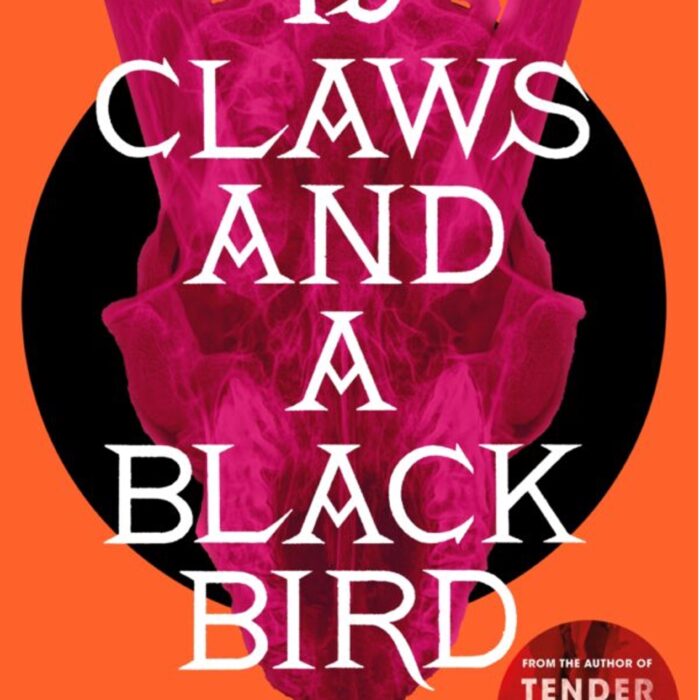You have no items in your cart. Want to get some nice things?
Go shopping
A narrative is like a room on whose walls a number of false doors have been painted; while within the narrative, we have many apparent choices of exit, but when the author leads us to one particular door, we know it is the right one because it opens. —John Updike
So, the notes are back from my editor and I’m embarking on the final (this time I mean it) rewrite of my novel. It’s had its fair share of revisions in its life: characters have come and gone and the ending has changed more than once. Usually each change feels more right than it did before, but sometimes I dig up an old draft and feel I’ve lost something along the way. With all the changes that a book goes through, how can a writer be sure that they are opening the right doors?
Some problems are purely practical. Decisions have to be internally consistent, but keeping track of continuity over 100,000 words can be bewildering. Mechanical continuity is one thing: someone shot with one of Chekhov’s guns at the end? That’s all right, you can insert something or other about Mr Chekhov’s weaponry emporium earlier on. But it’s the emotional continuity of relationships, characters and motivations that can be harder to recognise and untangle when you’ve been close to the book for a long time.
In one sense, novelists are lucky. On the page, words are easy to add, delete, and move around. Filmmakers often don’t have this privilege. Yes, scripts get written and re-written (often while the cameras are already rolling). But unless you’ve got cash for pick-ups and lots of digital post-production, once you’ve shot your footage it’s all got to make sense in the edit. A novelist limiting themself to reworking only the material they got down in the first draft would be in trouble.
Oliver. Twist?
But maybe we’re spoilt these days. The luxury of the rewrite was unavailable to those nineteenth century authors who wrote and published their books episodically. Dickens was a serialisation ninja: he could create a coherent whole whilst working over instalments. He seamlessly changed his plot as he went, even responding to reader reaction from episode to episode. But still, some of Dickens’ wilder plot twists and coincidences surely spring from the serial nature of his composition style.
In 2013, the web and e-books now present fertile ground for the return of this kind of agile serial fiction, but while it’s out there among the indies, so far mainstream take-up has been limited. Even Stephen King’s serial experiment The Plant remains unfinished, and he’s not exactly an author known for being lost for words. Much of the best serialised fiction these days is on television. Whether or not you can compare The Wire to Dickens is open to debate but, done well, TV drama can explore plot and character to a novelistic level of depth that feature films can only dream of.
Watching TV shows falter also reveals a lot about effective choices in fiction. The first two or three episodes of a show sometimes set up a story with such strong promise of a satisfying resolution that all the hours that follow can only be a disappointment (Lost: I’m looking at you). Take Heroes: its makers initially had a clear sense of where it was heading, so it managed to stay strong for two seasons. But after that it got confused, got soapy and then got cancelled. It felt as though the producers had stopped making decisions and started making guesses, and the viewing figures tell the story.
Stop making sense
Writers from Mark Twain to Tom Clancy have pointed out that fiction is unlike real life in that it has to make sense. Or, as Chandler’s Marlow observes in The Big Sleep: “It seemed a little too pat. It had the austere simplicity of fiction rather than the tangled woof of fact.” You can see Chandler playing with this conceit in the Big Sleep: the novel’s plot is so madly convoluted and ‘lifelike’ that one of the murders is even left unsolved.
No, humans do not have tidy arcs and life does not have neat endings: we are full of vacillation and inconsistency. And yet we do like to apply a sense of narrative to our lives. Great authors can capture this contradiction, and Dostoevsky’s Raskolnikov is perhaps the apotheosis of this. Like a real human being, he moves from self-righteousness to paranoia, from anger to sorrow, bitterness to compassion, sometimes in the space of a page. Yet Dostoevsky also has a clear vision of Raskolnikov’s journey and its wider symbolism. And if his redemption in the epilogue to Crime and Punishment is often considered less believable than the journey to that point – well, that just proves that even if you’re great, endings are hard.
And if you’re not great, they’re a bloody nightmare. I struggled with making the right choices for the ending of my current book, for my next novel I swore that I wouldn’t start attacking the prose until I’d meticulously planned and structured my story, worked out exactly who was going to do what and for what purpose. Sure, you can’t edit an empty page, but sometimes it can be even tougher to untangle complex plots that have grown over time like ivy over the house of your original idea.
So far, of course, it hasn’t worked out like that. I’ve spent days thinking about plot and nothing comes. But once I put my characters in a room, got them talking to each other and saw how they behaved, then the possibilities started to open up. In fact one of the best pieces of advice I’ve been given about plotting was to be led by how the characters would act rather than trying to push them into situations that satisfy the demands of plot. It might sound like writerly mumbo-jumbo to talk about your characters making choices, rather than you, but your subconscious is writing that book at the same time as your logical mind.
Well, YOU decide then
Perhaps novelists should abandon this conceit of definitive structure and decision-making and give into the lure of the interactive.
Dave Morris has produced an interactive Frankenstein where the reader is presented with a relatively fixed story, but one in which they can explore different perspectives by asking the narrator different questions. It’s a beautiful creation, but I’ll admit it didn’t quite work for me. I wanted to ask all the questions and explore all the pathways. I felt I was missing something by having to choose. It also made me remember being frustrated as a child by my repeated deaths in Fighting Fantasy book (‘in which YOU become the hero!’). I would be forever sticking fingers in multiple pages so I could track back to bad decisions. If I got really ticked off, I would just flick through them cover to cover and experience the story in a sort of BS Johnson’s The Unfortunates-style narrative.
As a sporadic X-Boxer, I know that computer gaming is a medium that can get to grips with interactivity much more effectively than books. Rather than telling linear stories, games can create whole worlds to explore and make decisions within. But it doesn’t always work. The sprawling space action opera franchise Mass Effect gives you many routes to follow, and many moral and practical decisions that shape your story and those around you. In narrative and technical terms it is massively impressive and makes for incredibly immersive gameplay.
But when they were hyping the final part of the trilogy, the producers made a big thing about how the choices you had made across two previous games would lead to radically different fates for you and the galaxy. Inevitably, though, when it came to the grand finale, your choices turned out not to have made that much difference. Whatever your path, it all ended on one of a variation of essentially similar cut scenes that brought everything (not very coherently) to a conclusion. As far as I could tell, your previous behaviour didn’t even make a difference to which of these endings you could choose at the very last moment.
This made a lot of gamers VERY angry. Injustice-angry, grief-angry, disallowed-goal-in-a-World-Cup-angry. They seemed aggrieved that the touted free will was a con, that they could not, after all, have it their own way. It was as if they felt they had been making actual choices rather than being guided down a set of predetermined paths.
But however botched the ending was, I didn’t mind the fact that I was forced to comply with the writers’ decisions. As with any book, film, game, I always felt that I was in someone else’s story, being carried along for the ride, gently nudged towards this door or that. Maybe I saw different things along the way from other gamers, but the destination was always there waiting for me.
So to have a truly interactive experience, we have to write a story ourselves. And even in that exercise we are not completely free. Sometimes we find ourselves guided by convention or drawn along certain narrative arcs. Sometimes the plot demands one thing whilst the characters demand another. Sometimes the story we want to tell is not the one that other people want to hear.
In the end, we have to construct a room where not all of the doors open. The finished novel is a distillation of all the decisions that have been made up to that point. Behind that book there will always be a palimpsest created by overlaying the many drafts: an interactive version of the book where the characters take many different decisions and events have many different meanings. But the only person who gets to read that version is the author.

Oliver Francis
Oliver Francis was born in Bristol, studied Human Sciences at Oxford and lives in Cambridge. Having escaped from the NHS after nearly a decade, he now works for a public health research group and writes fiction. When not doing either of those things he can be found in front of a film, behind a camera or making up tunes on the piano. Represented by Matthew Hamilton at Aitken Alexander Associates.





One comment